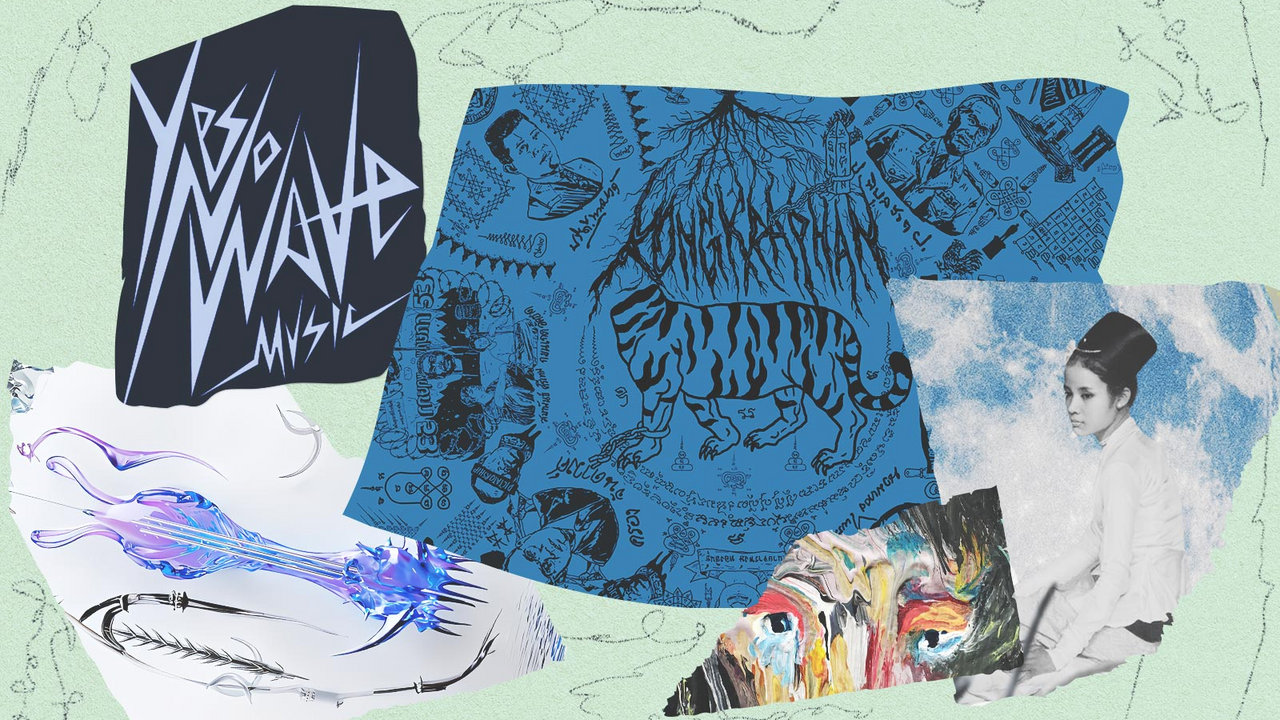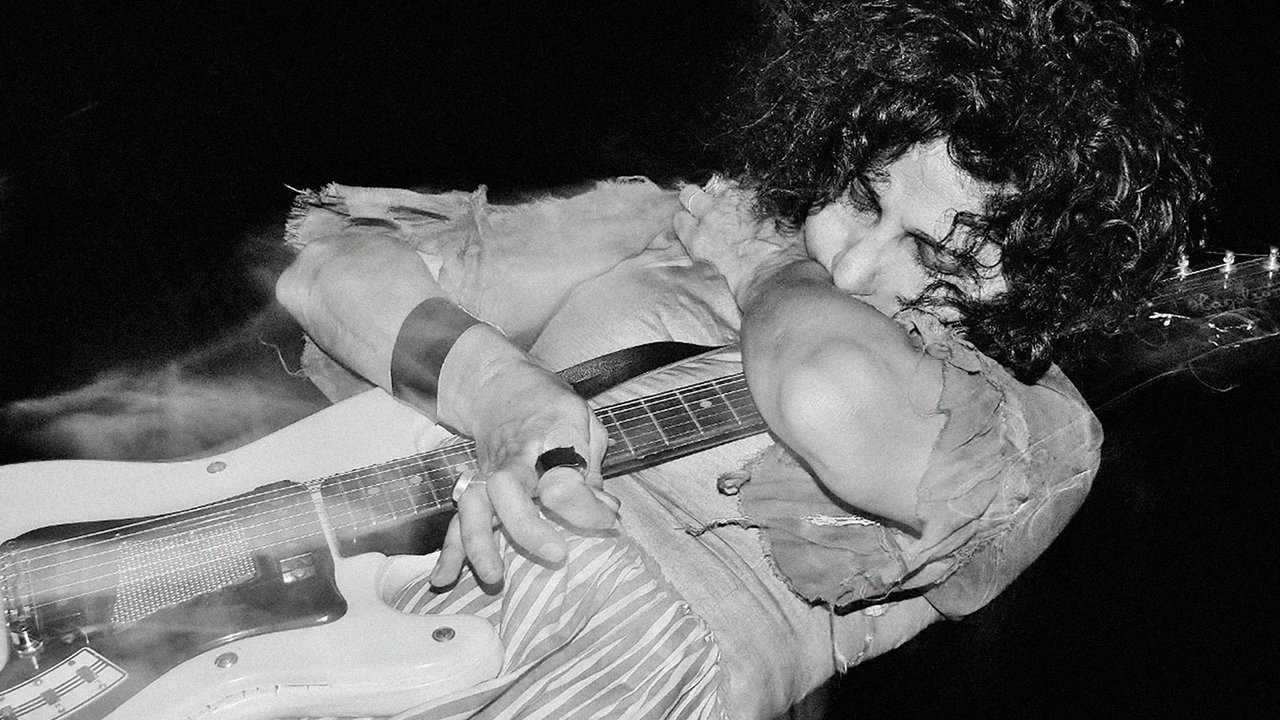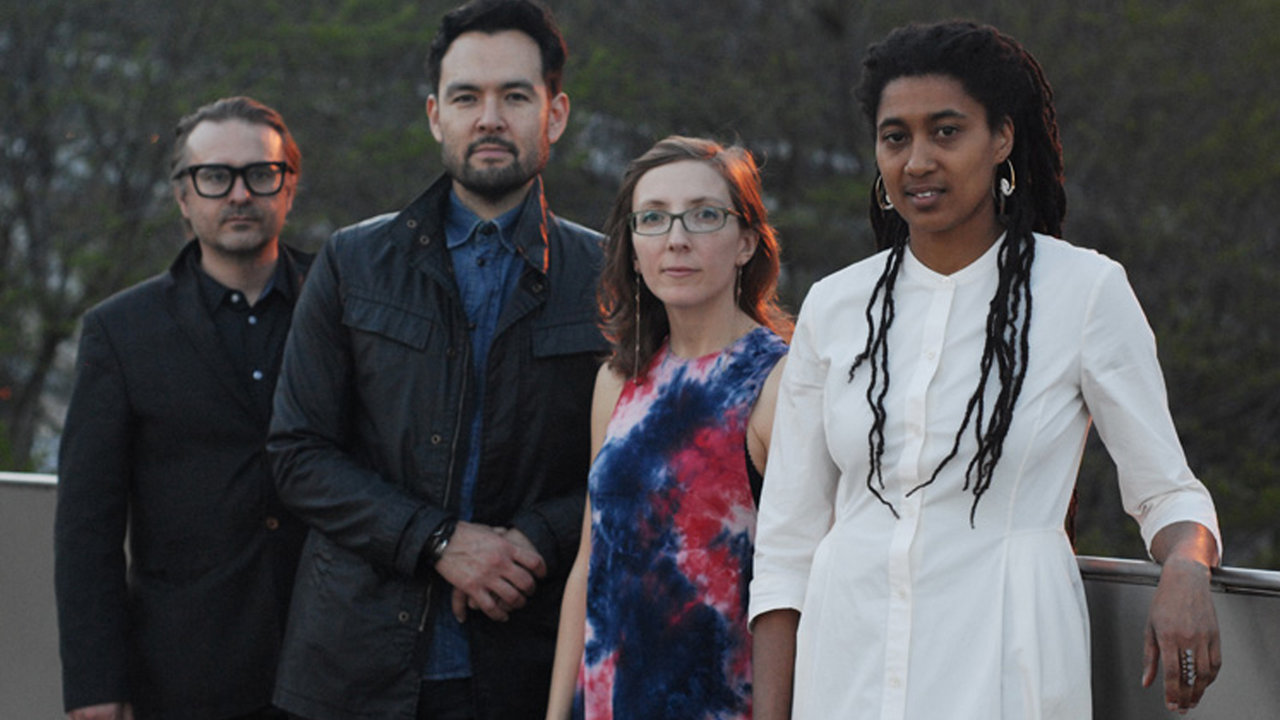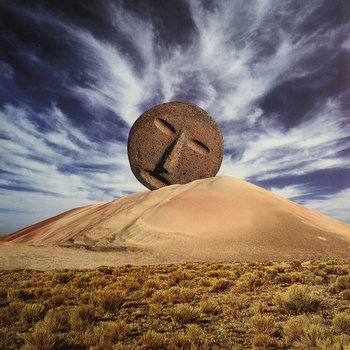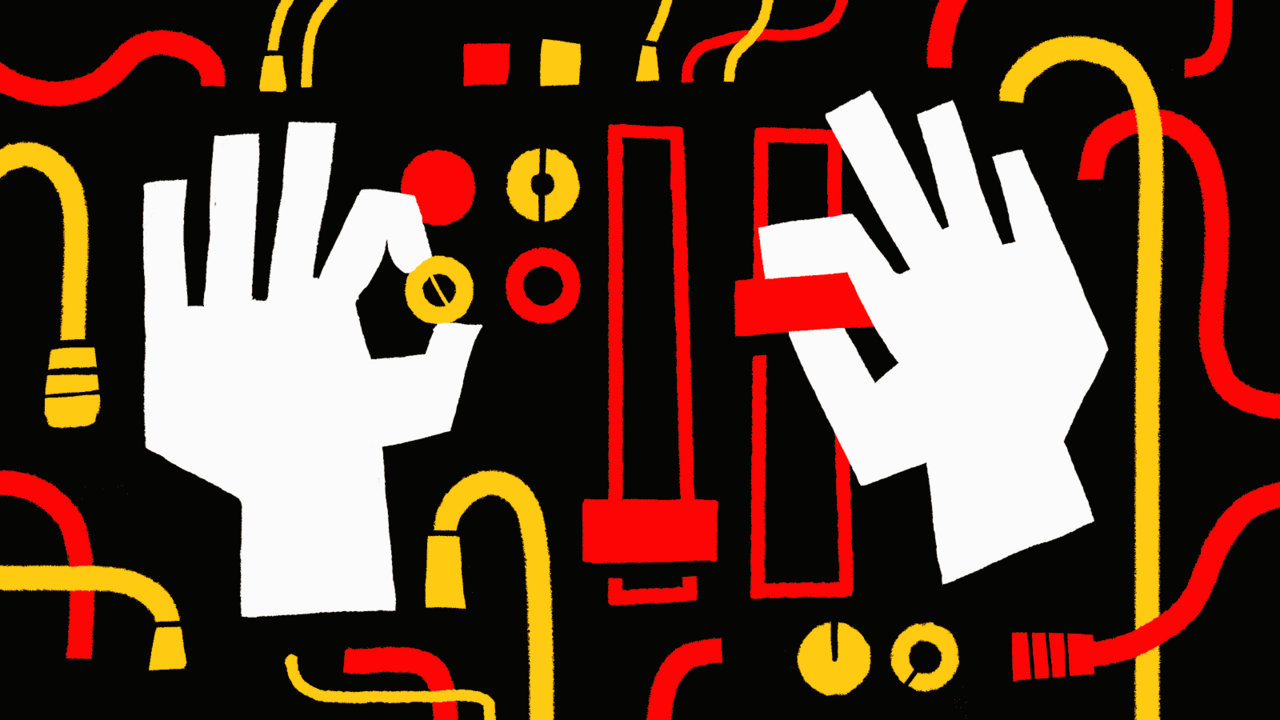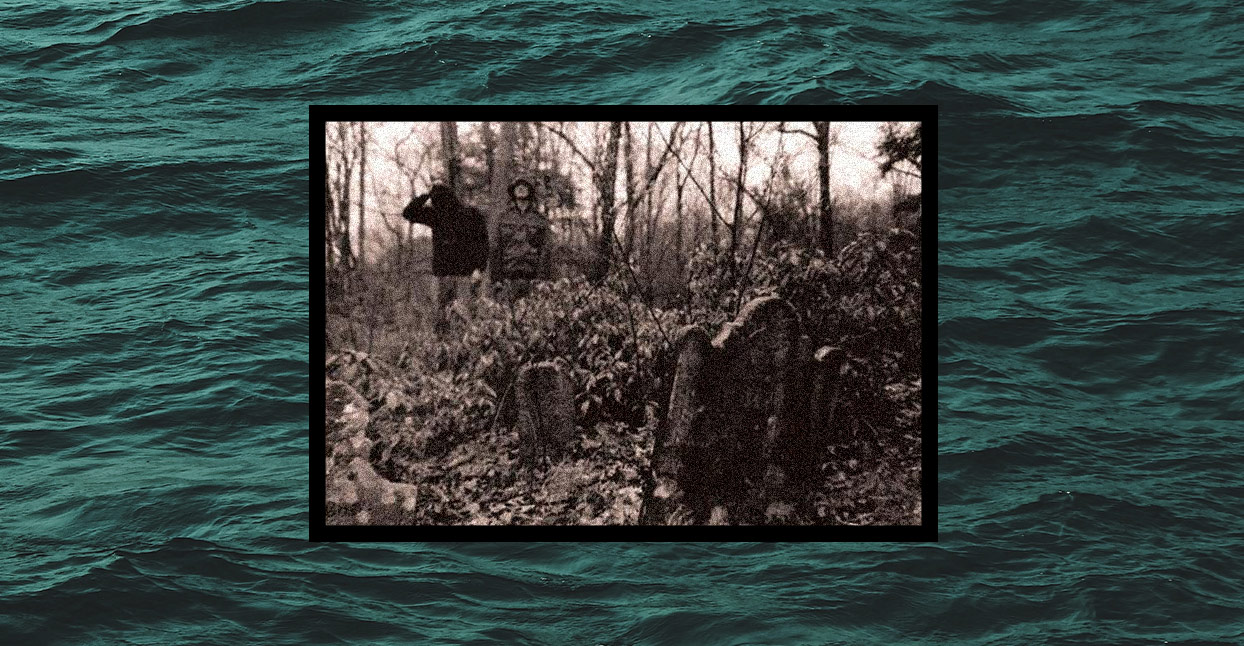
Deathconsciousness, the 2008 debut from Connecticut duo Have A Nice Life, is the last album you’d expect to go viral: 85 minutes of eclectic lo-fi home recordings from central Connecticut, somewhere between between post-punk, dark ambient, and darker folk, all inspired by and emulating the deepest pits of depression. But somewhere between Dan Barrett and Tim Macuga’s initial self-release and its seven-and-counting vinyl reissues, Deathconsciousness attracted a fervent audience in various online music communities. 4chan’s /mu/ board—that small, impassioned, and notoriously picky bunch who helped signal-boost Death Grips and Car Seat Headrest into the public consciousness—rated it #10 on their essentials list. /r/indieheads, which boasts a userbase over 800 times that size, awarded it a 9.02/10 score in a community poll. (Naturally, Have A Nice Life have their own subreddit as well.) “No one would know who we were if it wasn’t for the internet,” says Berrett. “It’s an intensely gratifying thing, because neither Tim or I thought anybody would listen to it, and we really emptied a lot of ourselves into that record.”
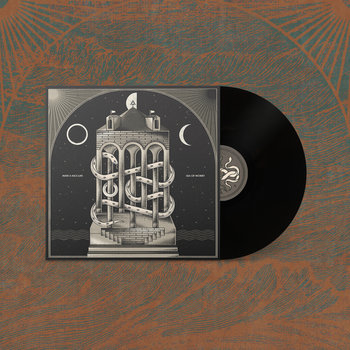

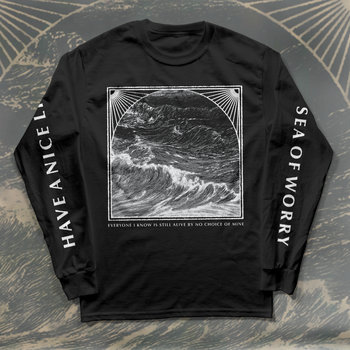
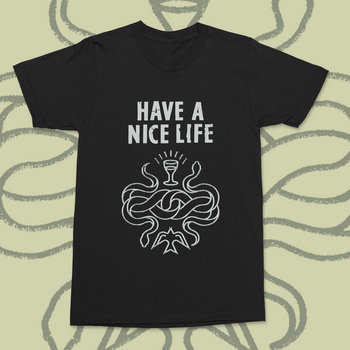


Vinyl LP, Compact Disc (CD), T-Shirt/Apparel




Even so, Barrett sees something inherently broken in the very web-based communities that put his band on the map. “One of the things about the online universe—which is where Have a Nice Life is a band essentially—is it’s very easy to turn very resentful,” he says. “The internet is like, a resentment factory. It’s very easy to get sucked into it, and I worry about that. Those are very powerful systems operating on a brain that still fuckin’ thinks, ‘I need to pick up a banana in the woods because I might starve to death.’ It weirds me out, and I think that stuff comes out in the music more often than not.”
With all that misery in mind, Have a Nice Life’s first album in five-and-a-half years, Sea of Worry, is very much on-brand: “Lyrically, all of the songs are anxiety-driven, in one way or another,” Barrett says. The eponymous lead single had some fans predicting that the album would be focused on climate change, but Barrett’s on-record malaise straddles, as he says, “That inward and outward-facing sense of, ‘Jesus Christ, it’s just hard to be alive right now.’”
“I had the idea that when I was an adult I would figure out a lot of personality flaws and issues that I’ve had my whole life,” Barrett says of those inward-facing anxieties. “And as you become an adult and come into yourself, you get a lot of those things, you just realize that you’re always this way— it kind of is who you are.” As he puts it on the song “Lords of Tresserhorn,” “I can stay up late whenever I want… but other than that, it’s nothing like I thought/ I guess I thought I’d know what I’m doing by now… but I know nothing.”






Vinyl LP, Compact Disc (CD), T-Shirt/Apparel




That particular song was inspired by Barrett’s kids, who he says still view staying up late as “this magical thing,” but several Sea of Worry tracks date back to the days before Barrett had children. “Trespassers W” and “Destinos,” in particular, are around a decade old, but their despair, confusion, and rage are a snug fit within the context of the new album. “Almost always for me, the themes for the records emerge after they’re recorded,” says Barrett. “I write a bunch of songs, and I write what feels right for the song, and when you put them all together and step back from it, then you see like, ‘Oh, that’s what all these songs are about.’”
Perhaps the most noticeable change on Sea of Worry is the presence of other musicians; the entire A-side forsakes Barrett and Macuga’s homespun approach in favor of a full-band sound. Up to this point, Have a Nice Life have operated almost exclusively as a duo (save for a few 2010 live appearances). After being invited to perform Deathconsciousness in its entirety at the Dutch metal festival Roadburn this year, they decided it was time for a change—so they assembled a full band, and hit the road for a North American tour. “Some of the Sea of Worry songs made their way into our 2019 shows, so we thought the new album should include those collaborators,” says Macuga. “It’s part of our identity at the moment, and that should be honored.”
The album’s most arresting moment comes on the aforementioned “Destinos,” another old cut that never found a proper home on previous Have a Nice Life albums. Listening, it’s easy to understand why: “Destinos” clocks in at 13 arduous minutes, the first five minutes of which are taken up by a disturbing audio clip of a fundamentalist Christian speaker ranting about the mathematical certainty of hell, a nightmare logic which leaves us terminably fucked. Barrett doesn’t remember exactly how he came across the snippet (“I was literally probably Googling for like, ‘Evil mp3 clip’”), but in retrospect, he considers it a facsimile of sorts, both for the album and life as a whole: “To me now when I listen to it, that’s what the whole world feels like.”
Certainly, Have a Nice Life have trafficked in despair for as long as some of their listeners have been alive. (In fact, Barrett says he recently chatted with a young fan who got into the band through his father, who’d played him Deathconsciousness frequently growing up). Taking Barrett’s word and viewing the whole world as a fire-and-brimstone screed may be a tough sell for the more optimistic among us—but hear him out.
“It feels like everyone has this system that they operate in, where your immediate actions make a lot of sense, but the underlying ethical framework of what everybody ends up doing is just completely fucked,” he says, explaining how this priest, or theologian, or whoever he is can sound so gleeful about eternal damnation. “So you end up with people doing incredibly terrible things and feeling completely good about it.”
Those closed-loop systems and communities that Barrett’s describing have only grown more prevalent in recent years, as the right has radicalized and—as Barrett sings on “Sea of Worry”—“co-opted nihilism.” It feels like the rest of the world has finally caught up with the decade-old anxiety found on “Destinos,” and maybe that’s why, despite its age, it’s such a fitting capstone on Sea of Worry. “Part of that’s probably just being a person,” says Barrett of his persistent sense of alienation, “but it feels way more intense now.”

